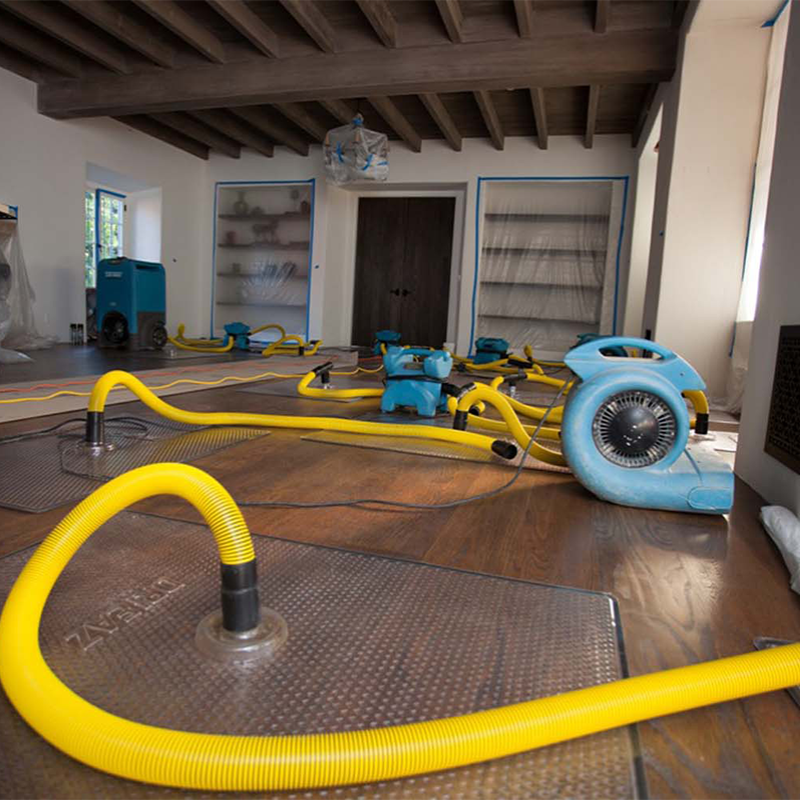
My Basement Is Flooding – What Do I Do And Who Do I Call?
By: 911 Water Damage Experts
Even if you’re reasonably adept at taking care of most house-related problems as they arise, basement flooding can be a whole different ball game. If you have never had to deal with it before, then you, of course, may not know what to do.
Fortunately, with the right flood removal experts on board and a bit of knowledge, you can be an expert when such a problem happens to you. If your basement is flooding, read on to learn what to do and who to call.
Turn Off The Power
Water and electricity don’t mix.
Before you step foot in the basement, make sure the power is turned off. Otherwise, if any electrical sockets are affected by water, you may receive a shock as soon as you touch that water.
If your power board is located in the basement, ring your utility company to arrange for them to turn it off for you.
Take Action Immediately
If a broken pipe, broken appliance, or failed sump pump is the cause of your basement flooding, then take care of the problem as soon as it happens.
The sooner you can stop the flow of water, the more minor the damage and costs you’ll have to combat.
If rain, flooding, and storms are to blame, you may need to wait until these threats have passed before you take action.
Wear Safety Equipment
Without knowing the water source or whether it’s clean or not, it’s essential to wear safety equipment. This includes gloves, boots, and a protective mask.
You may even like to wear a pair of waders if you have any handy. Take care while walking around to avoid any obstacles you may not see under the water.
Identify The Cause Of The Water
Act fast to determine the cause of the water – be it a broken pipe or a damaged appliance.
Turn off the water supply to the basement to stop the water flow in its tracks. If your basement has a floor drain, make sure it’s running freely and keep it open to ensure the water can drain.
Start Removing Water
And now the fun begins.
What you use to remove water from your basement can depend on how deep it is. For example, a few towels may work for puddles but will not prove suitable for a few inches of standing water.
Use a pump of some kind – be it a swimming pool pump or sump pump, to send water from the basement to your property. You can also use a wet/dry vacuum, mop, and bucket.
Move Out Your Possessions
Perhaps one of the most labor-intensive steps of fixing a flooded basement is emptying it of all your possessions. As tiring and time-consuming as it might be, it’s a necessary step.
Removing every wet item can put you in the best position to avoid mold and mildew.
Dry out things that can be saved for at least 48 hours. Some items may be able to be saved by a restoration company.
Empty cardboard boxes to save as many possessions as possible, but throw the boxes away. After a couple of days of drying, re-evaluate if anything further needs to be thrown away to prevent bacterial growth.
Leave all electronics in place to dry out, even if the power is off. An electrician can determine whether the items are safe, can be saved, or need to be thrown out.
Dry The Basement
With standing water removed and your possessions moved out of the basement, it’s now time to dry out the basement.
Open all windows and doors leading to this space and add fans to provide additional air circulation. If you hire a water restoration company, they have commercial equipment like dehumidifiers to speed up the process.
Wash The Basement
Cleaning the basement can ensure that you eliminate any dirt, debris, mold, and mildew to stop growth in its tracks.
Wash down the floors and walls, remove damaged or wet building materials like insulation and drywall, and spray an anti-mildew spray.
Top 10 Water Damage Restoration Equipment Used By Professionals
1. Wet/Dry Vacuum
A powerful vacuum designed to remove water from floors, carpets, and other surfaces quickly and efficiently.
2. Dehumidifiers
Devices that reduce humidity levels in the air, helping to speed up the drying process and prevent mold growth. High-capacity commercial dehumidifiers are typically used for large-scale water damage restoration.
3. Air Movers
High-velocity fans that circulate air and increase evaporation rates to dry out wet areas quickly. These are essential for drying floors, walls, and other surfaces.
4. Moisture Meters
Tools used to measure the moisture content in materials like wood, drywall, and concrete. These meters help professionals assess the extent of water damage and monitor the drying process.
5. Infrared Cameras
Thermal imaging cameras that detect moisture hidden behind walls, ceilings, and floors by identifying temperature differences. This helps locate water damage that isn’t visible to the naked eye.
6. Water Pumps
Submersible pumps or extraction units used to remove large volumes of standing water from basements, crawl spaces, and other flooded areas.
7. HEPA Air Scrubbers
Air filtration devices equipped with HEPA filters that remove airborne contaminants, including mold spores and bacteria, improving air quality during the restoration process.
8. Carpet Drying Fans
Specialized fans designed to dry carpets and padding quickly without causing further damage. They often feature adjustable airflow settings.
9. Desiccant Dehumidifiers
Advanced dehumidifiers that use desiccant materials to absorb moisture from the air, ideal for drying out large and heavily saturated areas, especially in cooler temperatures.
10. Antimicrobial Solutions
Chemical agents used to clean and disinfect surfaces, preventing the growth of mold, mildew, and bacteria. These solutions are crucial for ensuring a safe and healthy environment post-restoration.
These tools and equipment are essential for effectively addressing water damage and ensuring a thorough restoration process.
Who To Call When The Basement Floods?
If you have never had a flood in your basement before, then you’re unlikely to have an address book of numbers ready to go for that very issue.
We’ve included some experts below who may be able to help you during this trying time.
Water Damage Restoration Company
Certified, professional water damage restoration companies can assist with all parts of a flooded basement, such as:
-Dealing with the appropriate insurance precaution
-Carrying out minor plumbing repairs and organizing for other plumbers to visit
-Extracting floodwater
-Taking care of the drying process
-Sanitizing and deodorizing basements after storm flooding or sewage backup
-Removing, restoring, and disposing of damaged items
-Reconstructing damaged parts of the basement
-Carrying out mold removal and remediation
Licensed Electrician
An electrician is perhaps one of the first people you will call when your basement floods, particularly if you need them to turn off your electricity so you can safely access the basement.
It can also be worth having an electrician inspect your home if it has encountered hazardous problems, such as:
-Appliances affected by flooding
-Water-damaged wiring
-Electrical panel damage
-Water in or near electrical sockets
-Damaged electrical lines
Basement Flooding Doesn’t Have To Be Stressful
As unexpected and unwanted as basement flooding is, it doesn’t have to be the most stressful situation you’ll ever encounter. As long as you consider this information above and have the right experts to help, your basement can be looking as good as new in no time.
FAQs
1. What causes basement flooding?
Answer: Basement flooding can be caused by a variety of factors including heavy rain, melting snow, poor drainage systems, broken or clogged gutters, foundation cracks, burst pipes, and sump pump failures.
2. How can I prevent my basement from flooding?
Answer: To prevent basement flooding, ensure proper grading around your home, maintain gutters and downspouts, install a sump pump with a backup battery, seal cracks in the foundation, use downspout extensions, and consider installing a French drain or other drainage systems.
3. What should I do immediately after my basement floods?
Answer: First, ensure safety by turning off the electricity and avoiding contact with the water. Remove any valuable items from the flooded area, use a wet/dry vacuum or pump to remove water, and contact a professional for further assessment and repair.
4. How can I dry out my basement after a flood?
Answer: To dry out your basement, remove standing water using a pump or wet/dry vacuum, use dehumidifiers and fans to circulate air, remove and dispose of water-damaged materials like carpeting and drywall, and thoroughly clean and disinfect the area to prevent mold growth.
5. What are the health risks associated with basement flooding?
Answer: Health risks from basement flooding include exposure to mold, bacteria, and other pathogens. This can lead to respiratory issues, allergic reactions, and other illnesses. It is crucial to properly clean and disinfect the area to minimize health risks.
6. Does homeowners insurance cover basement flooding?
Answer: Homeowners insurance typically does not cover flooding from natural disasters like heavy rain unless you have a separate flood insurance policy. However, it may cover water damage caused by internal issues such as burst pipes or appliance malfunctions. It’s important to review your policy and understand your coverage.
7. How can I identify water damage in my basement?
Answer: Signs of water damage in the basement include water stains on walls and floors, peeling paint, a musty odor, damp or wet surfaces, mold growth, and increased humidity levels. Regular inspections can help identify these issues early.
8. What are the long-term effects of water damage in a basement?
Answer: Long-term effects of water damage include structural damage to the foundation, mold growth, deterioration of building materials, and reduced property value. It can also lead to ongoing health problems for inhabitants due to mold and mildew.
9. Should I call a professional for basement flooding and water damage?
Answer: Yes, it is advisable to call a professional to assess and repair basement flooding and water damage. Professionals have the expertise and equipment to properly address the issue, ensure thorough drying and cleaning, and prevent further damage and health risks.
10. What are the costs associated with repairing a flooded basement?
Answer: The cost of repairing a flooded basement can vary widely depending on the extent of the damage, the size of the affected area, and the specific repairs needed. It can range from a few hundred dollars for minor water removal and drying to several thousand dollars for extensive repairs, mold remediation, and reconstruction. It’s best to get multiple quotes from professionals to understand the potential costs.
If you have any questions about basement floods or ever need help with basement water damage feel free to call 1-833-WE-DRY-IT anytime all the time 24/7/365 we’re there when you need us!
Related Posts
Fire Damage Restoration Articles
The Dos And Don’ts Of Commercial Fire Damage
Forest Fire House Damage: What To Do After Your House Is Damaged By A Forest Fire And Who to Call?
Fire prevention tips for the summer
How to clean up after a house fire
Fire damage restoration checklist
Fire damage tips: 6 hazards property owners miss
How smoke from fires can negatively affect your health
What are the most common causes of house fires?
10 helpful smoke damage cleaning tips
Mould Removal Restoration Articles
Is Bathroom Mould Dangerous? Powerful Mould Prevention Tips Inside
Dangers Of Bathroom Mould And Tips On How To Clean And Prevent It
Got Bathroom Mould? Here Are Some Must-Know Bathroom Mould Cleaning Tips
5 Signs You Have Mould Growing In Your Walls
“Can I Remove Mould Myself?” Our Mould Removal Experts Have Answers
7 Must-Know Reasons Why You Should Get A Mould Inspection Before Buying A House
Does Mould Attract Bugs? Yes And Here’s What Kind And Why
How To Remove Mould From The Attic [Mould Prevention Tips Inside]
How Rain Causes Mould Growth-Prevention Tips Included
Must-Know Tips: How To Remove Mould In Your Basement
Water Damage Restoration Articles
How to prevent home storm damage
What you can expect from a fire damage restoration company
Water damage prevention tips from the most common problems we’ve seen
Top causes of water damage in commercial buildings and how to find them
Must-know water damage tips: What to do after your house floods
What does good water damage restoration look like?
DIY water damage restoration and the hidden dangers
How to choose the right water damage company
Flast floods: What to do before, during and after a flash flood
What to do when your attic leaks?
This is why water damage is a silent home killer
Related Water Damage Services
Fire damage restoration services
Water damage restoration services
Emergency cleanup services
Mould removal services
Weather damage services




Beauty Fashion
Simply wish to say your article is as astounding. The clarity in your post is just great and i could assume you are an expert on this subject. Well with your permission allow me to grab your RSS feed to keep up to date with forthcoming post. Thanks a million and please keep up the enjoyable work.